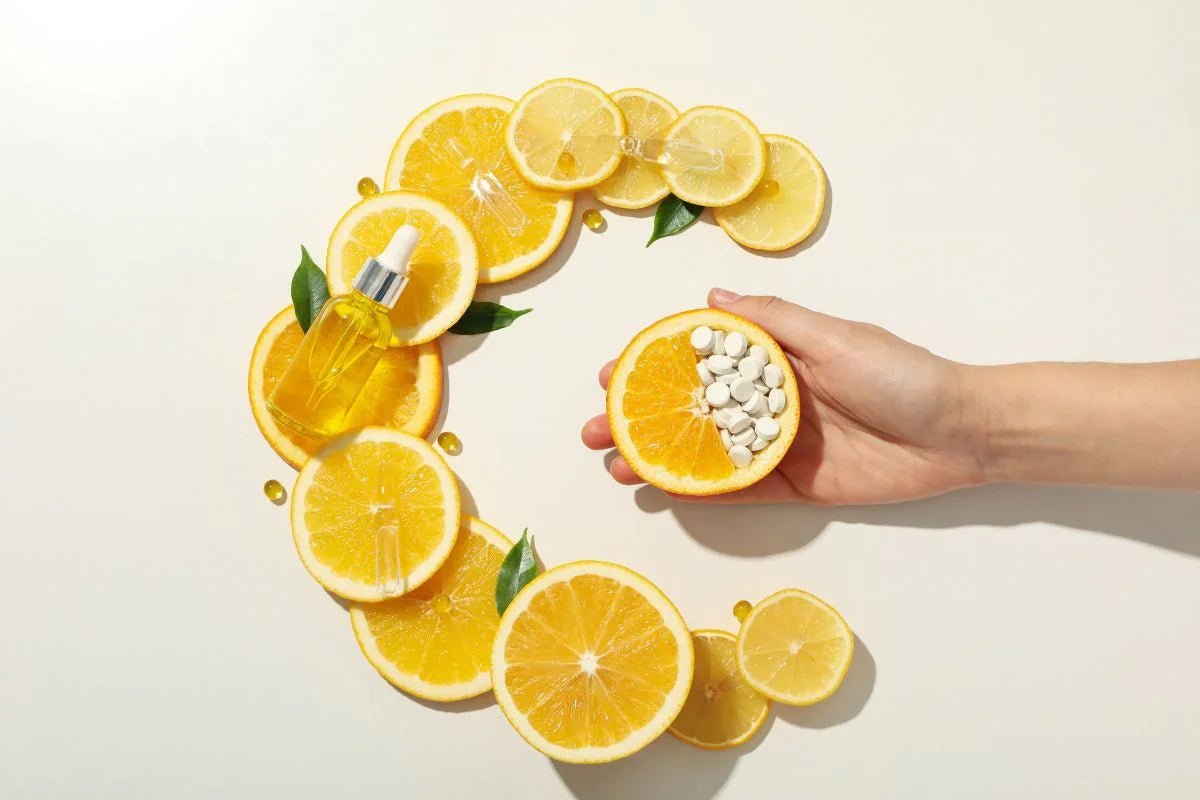
Vitamin C: Benefits and facts
Vitamin C supplementation has seen historical and seasonal ups and downs, but since its discovery in 1932 it has become a mainstay in many household cupboards. Of course it’s important to get enough vitamins and minerals from your daily diet, but there are certainly situations in which taking extra vitamins and/or minerals makes sense. Vitamin C may well be the most popular vitamin—and for good reason!
Vitamin C: Quick knowledge update
First, a bit of background on vitamin C. Vitamin C, also called ascorbic acid, is a water-soluble vitamin and antioxidant that is not stored in the body. By far the majority of animal species on earth can synthesize vitamin C from glucose. Humans are one of the few species that cannot. To keep the processes that require vitamin C running properly, we therefore need to obtain enough of it from our diet.
Some health effects of vitamin C
- Contributes to learning ability
- Contributes to normal psychological functioning
- Supports a positive mood
- Contributes to the normal functioning of the immune system
- Helps reduce fatigue
- Contributes to normal energy production
Supplementing with vitamin C is a good way to top up your diet with this vitamin, especially during periods when fewer local vegetables and fruits are available, such as in winter. Vitamin C supplementation is also particularly suitable for various specific indications where higher dosages are sometimes desired.
Vitamin C supplementation offers certainty
Alongside your diet, a vitamin C supplement offers a degree of certainty because you know exactly how much you’re getting. Dietary supplements are simply less susceptible to external factors than fresh fruits and vegetables—think freshness, growing conditions, and further processing.
Did you know?
- Vitamin C is found throughout the body, but the highest concentrations occur in the brain, neuro-endocrine tissues, the adrenal glands, and the pineal gland.
- Muscle meat also contains vitamin C: 500 grams provides about 12–14 mg.
- Organ meats such as liver are richer in vitamin C, with about 30 mg per 70 grams.
- A goat synthesizes about 13 grams of vitamin C per day.
Quali-C® by Doctor's Best
In products bearing the Quali-C® logo, Doctor's Best uses only vitamin C of traceable, European origin. Unlike most other vitamin C preparations, Quali-C® vitamin C is not produced in China. Quali-C® is therefore praised for its quality and reliability!
Liposomal vitamin C
Another way to supplement vitamin C is with liposomal dietary supplements. Here, the nutrient is encapsulated by liposomes—a “transport vehicle” derived from natural sunflower lecithin. Liposomes act like tiny capsules, with the active ingredient (such as vitamin C) enclosed by a phospholipid wall. Thanks to this protective encapsulation, the nutrient is delivered quickly and with minimal degradation into the bloodstream.
Stay healthy in this short period
Interested? Be sure to check out our range of vitamins. Of course, there are many other supplements that can support the immune system! We’re always available for advice. Stay healthy, stay safe!


